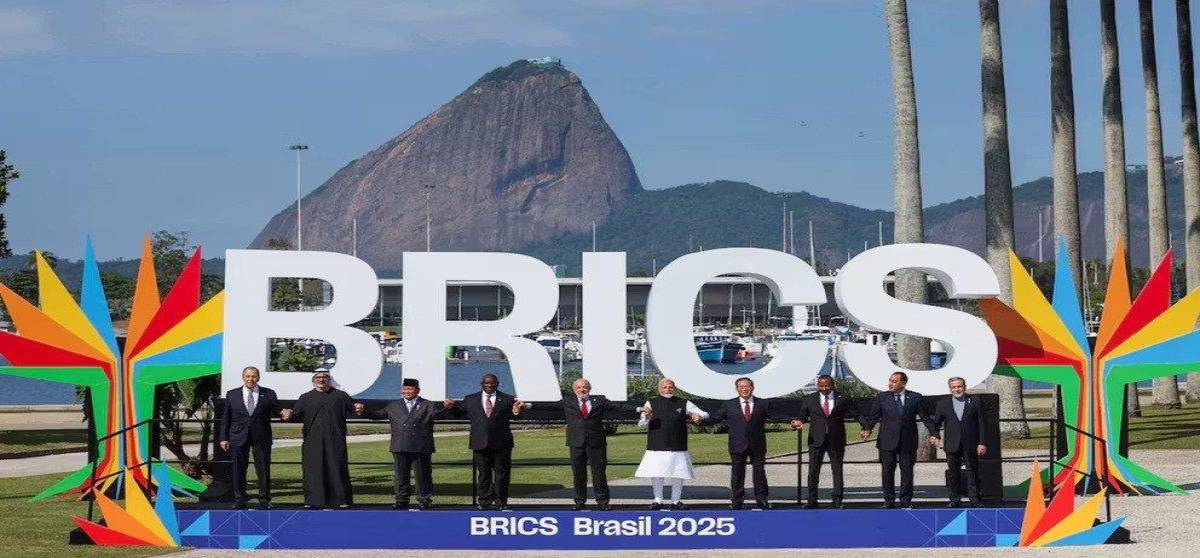2357 Views
Half the World vs. Israel: BRICS' Shocking Condemnation Exposes Western Decline
In the rapidly evolving landscape of global politics, the BRICS nations have asserted themselves as a counterbalancing force against the West. Their role in global developments has grown increasingly important—particularly visible in their response to geopolitical tensions in the Middle East. The actions and positions taken by BRICS are now placing political pressure on the Israeli regime and its Western allies, signaling a shift toward a multipolar world order.
On July 6, 2025, BRICS leaders gathered in Rio de Janeiro and issued a joint statement explicitly condemning Israel’s aggression against Iran. The statement read:
"We condemn the military attacks on the Islamic Republic of Iran since June 13, 2025, as violations of international law and the UN Charter."
The bloc expressed “deep concern” over attacks on civilian infrastructure and peaceful nuclear facilities under IAEA oversight, warning that such actions threaten both regional and global stability. This condemnation—coming from an alliance that represents nearly half the world’s population and roughly one-quarter of global GDP—underscores BRICS’s rising influence in global governance. More broadly, it reflects a world in flux, where Western dominance is no longer assured.
Moreover, BRICS’s approach to the Middle East goes beyond addressing immediate crises. It emphasizes achieving justice in the region through sustainable solutions. The bloc’s statement called for resolving not only the current conflicts but also the historical roots of instability in West Asia—namely, Israel’s occupation of Palestinian lands and the Palestinians’ ongoing denial of self-determination.
This comprehensive and united response from BRICS reflects its role in shaping a new world order through multipolar diplomacy. By condemning the actions of the United States and Israel and calling for UN Security Council intervention, BRICS challenges Western unilateralism and the U.S. veto power that has long shielded Israel from international accountability. This diplomatic push aligns with BRICS’s broader mission: to foster a multipolar world where power is shared among many global actors. In contrast to Western-led alliances, BRICS emphasizes sovereignty, international law, and collective decision-making—positioning itself as a counterforce to traditional Western dominance.
The bloc’s actions in July 2025 highlight its growing footprint in global governance, as it seeks to nurture a more just international order. BRICS aims to play a constructive role, grounded in UN principles, to resolve global crises and replace the West’s double standards with new values. If sustained, this approach offers a hopeful alternative for nations seeking reform within a multipolar framework.
BRICS’s position significantly increases political pressure on Israel and the United States. As a coalition of emerging powers, its condemnation carries weight and could diplomatically isolate Israel while challenging U.S. hegemony. By supporting UN intervention and endorsing the creation of a Palestinian state, BRICS has the potential to reshape institutions like the United Nations. Its member states could push for resolutions aligned with their vision of global justice. This pressure may inspire other Global South nations to adopt similar stances, amplifying demands for a more balanced world order.
The bloc’s condemnation of Israel marks a pivotal moment in global politics and highlights the decline of Western dominance alongside the rise of a multipolar world. Its call for withdrawal from Gaza and emphasis on justice in West Asia reflects its commitment to international law and lasting peace. By exerting political pressure on Israel and the U.S., BRICS is reshaping global dynamics, challenging unilateralism, and promoting a fairer global system.
As BRICS’s role in world affairs continues to grow, its assertive multipolar diplomacy signals a broader shift away from Western hegemony. The West can no longer act as the world’s sole dominant force—and BRICS’s moves in the Middle East are a clear sign of this transformative turn toward multipolarity.
*Translated by Ashraf Hemmati from the original Persian article written by Amin Mahdavi

Comment
Post a comment for this article